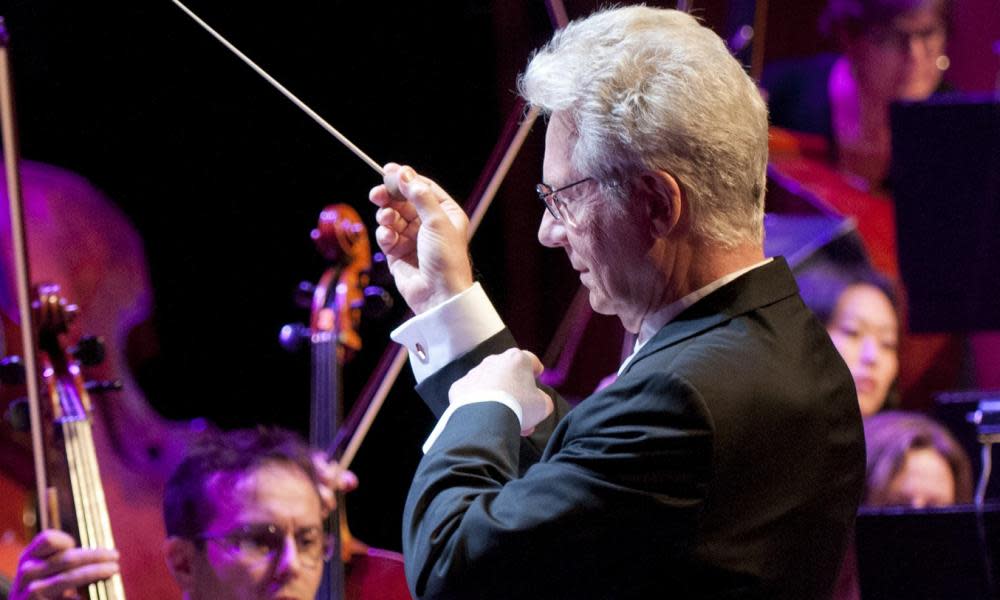LPO/Mauceri review – grand, radiant and moving in the extreme

A raconteur as well as a conductor, John Mauceri introduces his programmes from the podium. “This is about belief and transformation,” he told the audience ahead of his concert with the London Philharmonic as part of the Southbank’s Belief and Beyond Belief festival. An examination of music’s ceaseless ability to renew itself by revisiting and transforming the past, it was a beautifully structured evening.
Each half opened with an arrangement, the first with Schoenberg’s orchestration of Bach’s E flat major Prelude and Fugue, BWV552; the second with Leopold Stokowski’s “symphonic synthesis” (Mauceri’s description) from Act III of Wagner’s Parsifal.
Schoenberg’s Bach, owing as much to Wagner’s Meistersinger as to his own theories of tone colour, sounded grand and dexterous. Stokowski’s Wagner omits the Good Friday Music, rather surprisingly, and focuses on the act’s central interlude and finale: not everyone, I suspect, will agree with Mauceri about its greatness. There was no mistaking the splendour of his performance, however.
Nobilissima Visione, Paul Hindemith’s 1938 ballet about Francis of Assisi, and Strauss’s Four Last Songs formed the rest of the programme. Hindemith’s tricky mix of radical harmonies, bucolicism and loftiness really benefitted from the LPO’s plush yet clean sound, which is ideally suited to his music. American soprano Angel Blue sang the Strauss with a silvery, radiant tone, making more of the text than some interpreters. Mauceri opted for expansive speeds, above all in Im Abendrot, its final fade to silence moving in the extreme.

 Yahoo News
Yahoo News 
